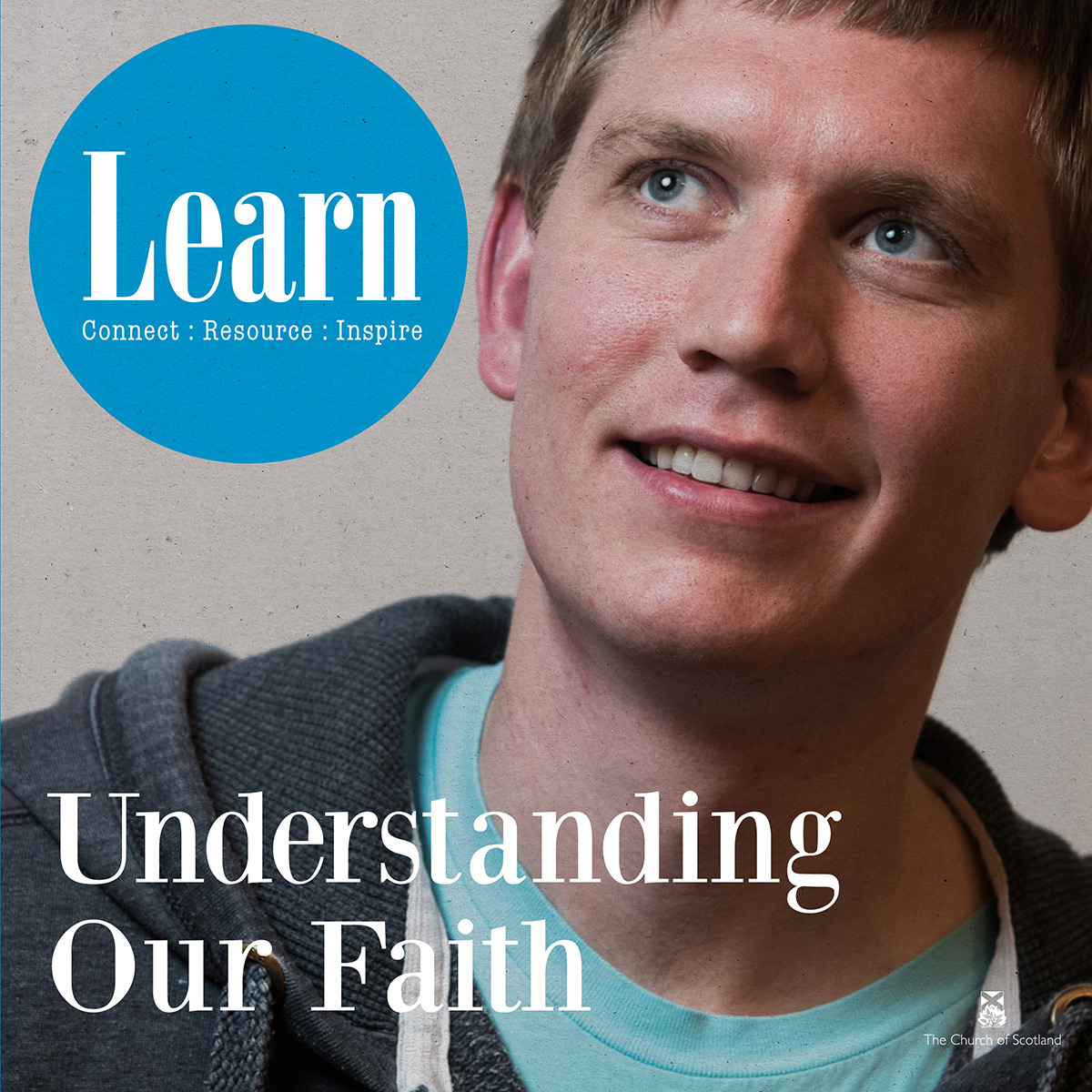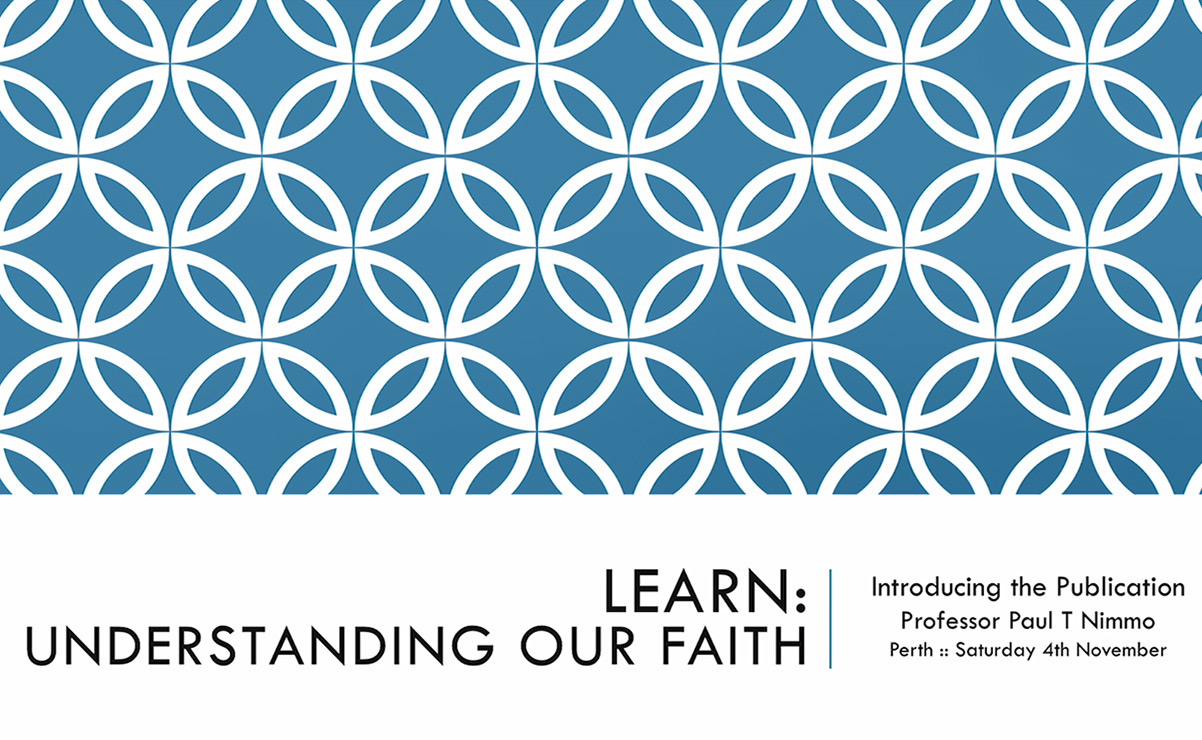Learn: Understanding Our Faith

Learn: Understanding Our Faith is an ideal introductory resource to theological thinking and reflection for everyday believers in the Kirk.
Carrying on the exciting journey for which its predecessor Learn: Exploring Faith has laid the foundation, this publication introduces readers to thinking in more depth and in more detail about their Christian faith through the exploration of seven core themes of faith:
Knowing God
God the Creator
God the Saviour
God the Spirit
The Christian Church
The Christian Life
The Heavenly Things
Each theme opens with a short bible study which serves to link the witness of Scripture directly to the two questions that arise in the lives of believers to be addressed. Following these questions and their responses, each theme proposes questions for discussion/reflection, before closing with a contemplative prayer. The volume offers a list of further reading suggestions on each theme at the end.
This book is written by the following contributors: David Fergusson, Sandy Forsyth, Frances Henderson, Alison Jack, Jan Mathieson, Paul T. Nimmo, Sarah Lane Ritchie, David Scott and Andrew Torrance.
Learn: Understanding Our Faith encourages readers to reflect explicitly upon their faith, whether on their own, or in informal or planned conversation, and assists them to understand and communicate their faith more clearly and with more confidence.
Save up to 35% on the cost of Learn: Understanding Our Faith publication on bulk order purchases through St Andrew Press.
Excerpt from Learn: Understanding Our Faith
Editorial
Paul T. Nimmo – King's Professor of Systematic Theology, University of Aberdeen
The path to greater knowledge and understanding of the Christian faith is not an easy one. The ways and works of God are not always readily apparent or easily grasped – not for nothing did Paul suggest that what Christians believe was ‘foolishness' according to human wisdom (1 Corinthians 1.18).
Yet as one part of the larger journey of faith, this particular route of exploration offers not only challenges and frustrations but also discoveries and delights.
Where does everything come from?
David Fergusson – Professor of Divinity and Principal of New College, University of Edinburgh
The short answer to this question is simply ‘God'. This is affirmed by the opening statement of the Apostles' Creed: ‘I believe in God, the Father Almighty, maker of heaven and earth.' But the Bible is not alone in affirming that God created the world. Almost all religions have their creation stories, and the philosophers of classical antiquity, especially Plato and Aristotle, assumed that the order and movement of the world must be accounted for by the action of God. To this extent, the idea of creation is a universal theme in religion and philosophy.
But the Bible does not merely repeat what we find elsewhere. The depiction of creation in Scripture is full of distinctive themes of Hebrew and early Christian thought. For this reason, we should not consider Christian teaching about creation only as an account of how the world originated, although that is of course included. The language of creation also attests God's character and purposes, the wisdom and beauty of the world, the value of embodied life, the story of God's covenant partnership with Israel and the nations, and the cosmic significance of Jesus.
Endorsements
"Faith is thought, prayer and contemplation put into action. To understand our faith better requires constant questioning and wondering and imagining… Part of the process of belief must lead us to authentic action that demonstrates what we believe and how it has transformed us… This new book in the Learn series will help all of us to do that."
Right Rev Dr Derek Browning, Moderator of the General Assembly of the Church of Scotland (2017-2018)
"This resource helpfully opens up some of the big questions that arise about the Christian faith in an age when popular understanding assumes that science has supplanted the need of faith. It does not shy away from this perception and helpfully points to ways in which science and faith can engage with one another in a way that is constructive."
Very Rev Dr Sheilagh Kesting, Former Ecumenical Officer of the Church of Scotland
Further reading and resources
Learn: Exploring Faith, a welcoming introduction to Christian faith
